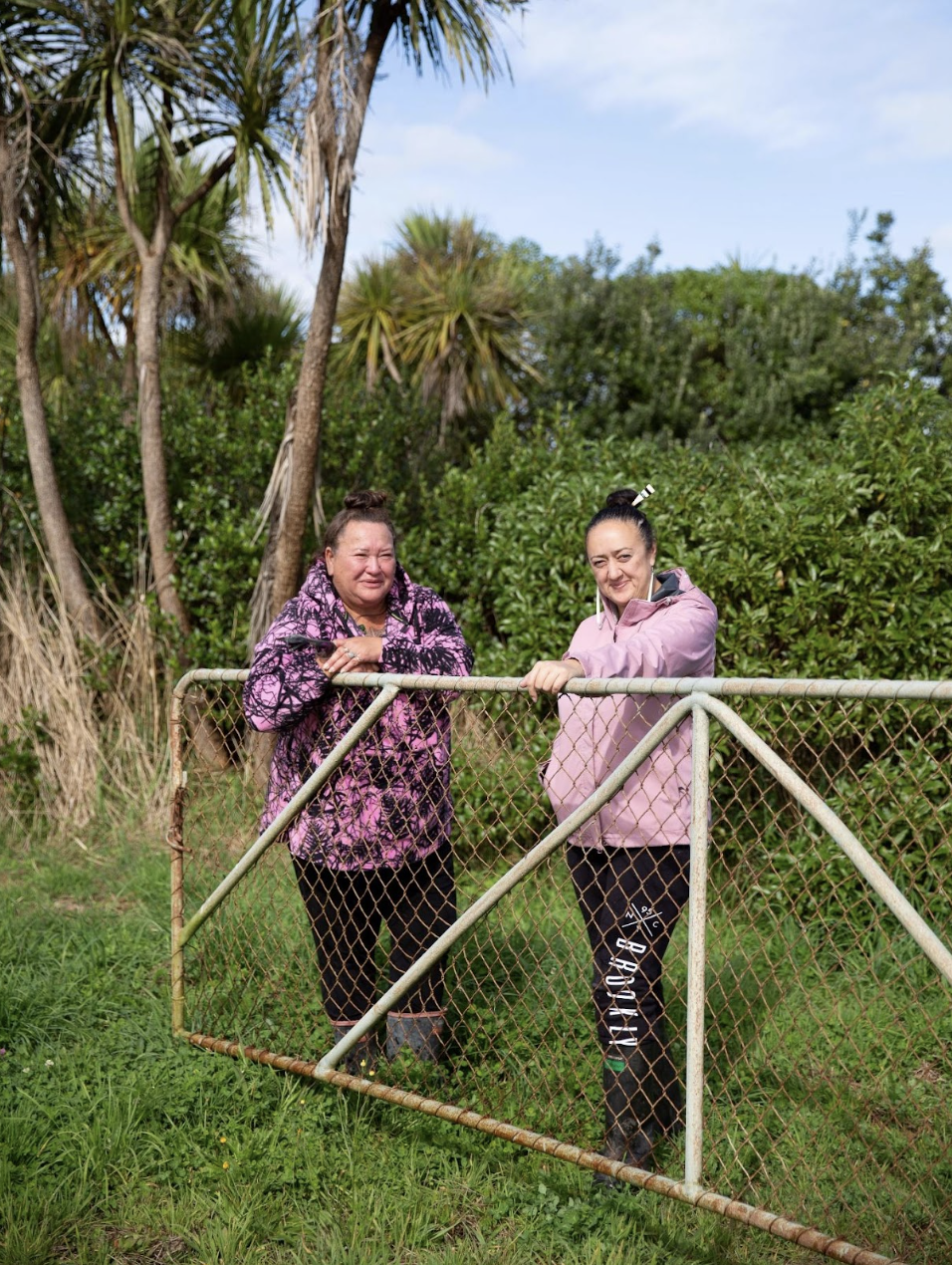Dr Aroha Spinks Ngāti Raukawa, Ngāti Tukorehe, Tainui/Waikato
Environmental Scientist, Independent Consultant
Dr Aroha Spinks Ngāti Raukawa, Ngāti Tukorehe, Tainui/Waikato is an independent consultant in New Zealand striving for a sustainable future that builds resilience within ecosystem and communities. She is an environmental scientist with experience in fisheries, restoration ecology, kaupapa Māori approaches, and Te Tiriti o Waitangi Indigenous research.
More About Dr Aroha Spinks
She holds a PhD in Resource and Environmental Planning, Bachelors of Applied Science in Fisheries with Distinction and First Class Honours. Her doctorate research topic ‘Restoring the mauri of coastal dune lake ecosystems: The case study of Lake Waiorongomai, Ōtaki.’ Dr Spinks was appointed into the inaugural Kaihautū Taiao (Environmental Science Director) role for the World Wide Fund for Nature New Zealand. In that former leadership role she advanced the organisation to respect and elevate Māori knowledge, as well as improve tribal engagement. Aroha is passionate about advocating for Indigenous leadership and collaboration to enhance the well-being of our environment and communities.
Dr Spinks mentions that: “Improved sustainable management will be possible with the valuable input of Indigenous expertise, alongside science, enforced policies and community views. Central to success will be the collective use of diverse knowledge systems and worldviews in order to produce positive outcomes for inter-related ecosystems.”
References
Dr Aroha Spinks doctoral thesis ‘Restoring the mauri of coastal dune lake ecosystems’
Relevant Work
Manaaki Taha Moana Project a collaborative 6 year Ministry of Business Innovation and Employment funded $6m project
Horowhenua region project publications available along with others: https://www.horowhenua.govt.nz/News-Events/Publications
Examples of publications:
Smith, H., Spinks, A., Hoskins, T., Poutama, M. (2011) State of ecological/cultural landscape decline of the Horowhenua coastline between Hōkio and Waitohu Streams. Manaaki Taha Moana Research Report No. 2. Massey University, Palmerston North.
Newcome, E., Smith, H., Poutama, M., Clark, D., Spinks, A., Ellis, J., Sinner, J. (2014). Faecal contamination of shellfish on the Horowhenua Coast. Manaaki Taha Moana Research Report No. 23, Cawthron Report No. 2573. Massey University, Palmerston North.
Smith, H., Allan, P., Bryant, M., Hardy, D., Manning, M., Patterson, M., Poutama, M., Richards, A.,Richardson, J., Spinks, A.(2017). Adaptation strategies to address climate change impacts on coastal Māori communities in Aotearoa New Zealand: A case study of dairy farming in the Horowhenua-Kāpiti coastal zone. Massey University, Palmerston North.
Moira Poutama and Dr Aroha Spinks at the gate to Te Hākari a Ngāti Tukorehe restoration project (Taken by Sylvia Wintel).
NZ Herald newspaper article
Environment: The big issues green groups want action on next term, 15 October 2020
National Science Challenges. The Deep South-Te Kōmata o te Tonga
Adaptation Champion article, Moira Poutama and Aroha Spinks
Three Indigenous led climate change research projects undertaken in the Deep South National Science Challenge:
Phase 1 — ‘Adaptation Strategies to Address Climate Change Impacts on Coastal Māori Communities’ (CO1X1445)
Phase 2 — ‘Risk Management Planning for Climate Change Impacts on Māori Coastal Ecosystems and Economies’ (C01X1412)
Phase 3 — ‘Manaaki I nga taonga i tukua mai e nga tupuna investigating action-orientated climate change transitions to water-based land uses that enhance taonga species’ (C01X1901)
Te Hākari Wetlands project — the beginnings of which are outlined in Dr Huhana Smith doctoral thesis:
Hei Whenua Ora: Hapū and iwi approaches for reinstating valued ecosystems within cultural landscape
Te Wānanga o Raukawa website: https://www.wananga.com
Living with the Climate Crisis. 2020. BWB Bridget Williams Books.
Editor: Tom Doig. This BWB Text brings together mātauranga Māori and Pasifika perspectives, voices from academia, activism, journalism and economics to bear witness to these troubled times. If much of the world can work together to beat a deadly pandemic, imagine what might happen if we turned our collective energy to tackling the climate crisis.
Returning to live on our whenua chapter by Aroha Spinks. Other contributors: Patrick Crewdson, Shaun Hendy, Ingrid Horrocks, Maia Ingoe, Suzi Kerr, Ollie Langridge, Meg Mundell, Jess Pasisi, Jacqueline Paul, Tamatha Paul, James Renwick and Taa Ramsay Vili.
https://www.bwb.co.nz/books/living-climate-crisis/
Stuff Article — Māori are among the most vulnerable to climate change
Scoop Independent News press release — WWF-NZ: The Government Delivers a ‘Business As Usual’ Budget
Scoop Independent News press releases 1 September 2022 – WWF-NZ is taking a stand for our ocean
Stories Asia – Kim Choe 21 July 2022. AI – equipped drones study dolphins on the edge of extinction
The Proven Sustainable™ Conversation Series is a fiscally sponsored project of the Center for Transformative Action, a 501(c)3 tax-exempt organization. Any funding directed towards the Conversation Series will go towards production efforts to ensure the the recorded discussions are diligently captured and meaningfully distributed. This Conversation Series and website are not-for-profit and created with the intent of channeling support directly to the Peoples represented.


